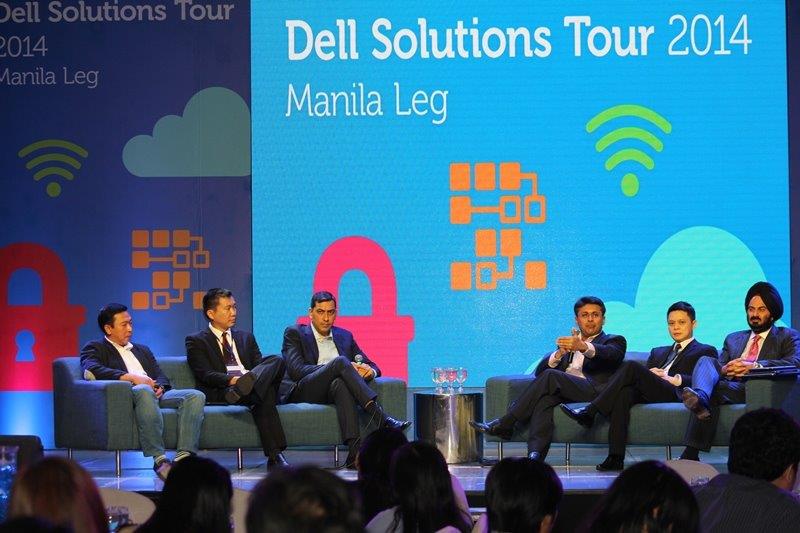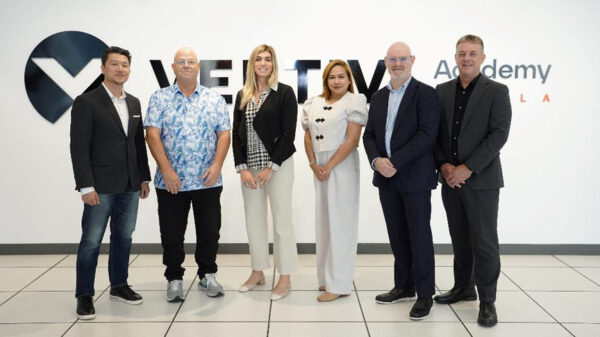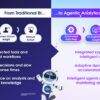Dell recently showed its commitment to corporate customers through a solutions tour that bared the company’s enterprise strategy as well as IT trends the company believes are likely to unfold this year. The company also announced a new high-performance server and a series of enterprise storage arrays targeted at mid-sized fibre channel deployments.
Dell became a private company in October as part of a $25 billion buyout deal. The privatization, according to CEO Michael Dell, will have a number of benefits for customers, enables the company to innovate more quickly, and hastens its reinvention as an enterprise services firm as it will no longer have to answer to investors.
Through four key themes, Transform, Connect, Inform and Protect, Dell hopes to help customers improve their IT agility through transformation in the data center; increase productivity by enabling the next generation workforce to connect securely to the corporate data anywhere, anytime and on any device; gain control of the data deluge and use this information to gain competitive advantage; and protect their organization from external or internal IT security threats.
In today’s highly competitive environment, the company said that TCIP will become even more relevant as further impact from the five IT trends namely cloud computing, bring-your-own-device (BYOD), social media, big data analytics and security, is likely to happen.

Dell, Intel and Microsoft executives during Q&A (from left): Mon Delos Reyes, Multinational OEM Accounts Consumer Channels Group, Microsoft Philippines; Christopher Syling, Business Development Manager, Intel Philippines; Sumir Bhatia, Regional Director, Enterprise Solutions, Dell South Asia; Saleh Haji Munshi, Managing Director, Indonesia and SADMG, Dell; Christopher Papa, Country Manager, Dell Philippines; Harjeet Singh Rekhi, General Manager for South Asia Developing Markets, Dell
One Cloud Does Not Fit All
Unlike in the past when most establishments adopted cloud services without considering their company size or nature, Dell claims that this year, organizations will increasingly realize that one cloud does not fit all. In fact, Forrester predicts that enterprises today recognize the need for a comprehensive strategy before partaking in the cloud. Cloud options, including public, private or hybrid as well as the security of data moving in and out of the cloud will be given utmost attention.
CYOD is the new BYOD
As BYOD, or the phenomenon which allows employees to bring their own device in the workplace, continues to raise challenges like the loss of control over devices, and the problem of allowing corporate networks exposed to employees’ personal data, viruses, apps, open ports and cloud services, Dell sees a new alternative mobility business model known as Choose Your Own Device (CYOD) to look into in 2014.
CYOD, which bridges the gap between employee choice and the need for CIOs to manage and secure the enterprise, enables organizations to offer their employees a choice of a company-approved device with the appropriate security and standardization. Dell assures that CYOD helps CIOs easily manage the use of multiple device options with the right security configurations.
Digital Relationships with Social Media
Since social media is fast gaining popularity as a means to connect and deliver ideas and messages to a target set of audience, Dell predicts that this medium will continue to become more than a tool for organizations in 2014. This is true especially since customers often have the best ideas and insights, being the endusers of various products and services. As a firm believer of learning from customer feedback, Dell says that social media will become an extension of any brand and their relationships with their customers.
Big Data Analytics Get Simpler to Deploy
To efficiently run their operations and understand their businesses, companies turned to big data analytics and allied services. The technology is expected to grow but not all enterprises are not ready to venture into it due to factors such as increase in data volumes, investments in infrastructure, the lack of skills needed to build and maintain a complex big data analytics infrastructure, etc.
In response to this, Dell relayed that a business opportunity to develop new analytical models and supporting tools to help companies deal with big data and leverage analytics will be more apparent in 2014. Dell claims that options to leverage big data analytics will increase – from outsourcing data analytics to cloud-based service providers to purchasing simple data analytics start-up kits.
Security at the Core of Business Strategy
The major challenges affecting IT operations at this time are giving rise to new requirement for IT security in the enterprise. Enterprises will increasingly embrace a holistic strategy focused on connecting security to the infrastructure, information and applications that are crucial to the organization.
This year, firms should learn that security is very much their business strategy which focuses on protecting data wherever it resides – on the network, in the cloud, or on mobile devices and not just a component of its IT strategy.
Dell PowerEdge R920
Dell also launched at the event its 4-socket, 4U Dell PowerEdge R920, a top of the line server which handles extremely demanding mission critical workloads like enterprise resource planning (ERP), customer relationship management (CRM), e-commerce and the very large databases, including in-memory databases.
Powered by Intel’s new E7 processors, the server has up to 60 cores of processing power and several data access enhancements so it can perform more transactions in less time. These enhancements include the eight ultra high performance, ultra low latency PCIe Express Flash drives that outdo the IOPS performance of rotating drives; the new H730P PowerEdge RAID controller (PERC) that doubles the previous cache size and delivers up to 100% more IOPS performance; and the dual PERC capacity that lets users maximize performance across the larger number of available solid state drives (SSDs).
The R920 has six TB of memory and up to 24 local storage drives. It also has threaded HPC applications that require large amounts of shared memory or SMP codes that accommodate applications that scale-up (vs. scale-out). The server includes a plug-in for managing or monitoring HPC environment via Nagios (Linux console). An agent-free out of the band monitoring has been integrated to the server so customers can avail of greater performance benefits for their applications.
With built-in Dell’s exclusive Fault Resilient Memory and Intel’s Run Sure Technology, the R920 lets users operate their data centers without disruption. The new integration between OpenManage Essentials and Dell AppAssure software, along with automated embedded server configuration backup via IDRAC with Lifecycle Controller also help improve service continuity by backing up the entire server stack of hardware, OS and applications so customers can operate with peace of mind.
Further, the R920 will be able to leverage capabilities of Dell Fluid Cache for SAN when it is introduced in the near future. Fluid Cache for SAN is an enterprise application acceleration solution which aimed at speeding up response times by bringing the most frequently accessed business data center closer to the compute resources.
The PowerEdge R920 will be available worldwide later this quarter.
New market opportunity with storage arrays
Dell also announced it is seizing a new market opportunity with the unveiling of a brand new series of full-featured, enterprise storage arrays designed for mid-sized fibre channel deployments. Available first in the Asia-Pacific region and planned globally later in 2014, the new Dell Storage SC4000 Series arrays will debut with the Dell Storage SC4020, a 2U, 24-drive storage area network (SAN) based on Dell Compellent Storage Center software.
The arrays are designed to offer the same advanced capabilities as larger SANs in a solution sized and priced for mid-sized deployments. Launching with fibre channel connectivity, the new arrays complement the Dell EqualLogic iSCSI-based solutions and enable Dell to offer full-featured arrays that address both networking demands for mid-sized storage needs.
The new Dell Storage SC4020, which can scale to 408 terabytes of raw capacity, supports a wide range of workloads for organizations across all industries and sizes seeking a high-performing, mid-sized SAN entry point or a remote or branch office storage solution. For example, the Dell Storage SC4020 can host up to 10,000 Microsoft Exchange 2013 user mailboxes in a single 2U SAN with 24 hard disk drives, and, with only 12 drives, the same 2U SAN can achieve up to 129,000 Oracle database workload IOPS (input-output operations per second) with less than one millisecond latency.

















































































































